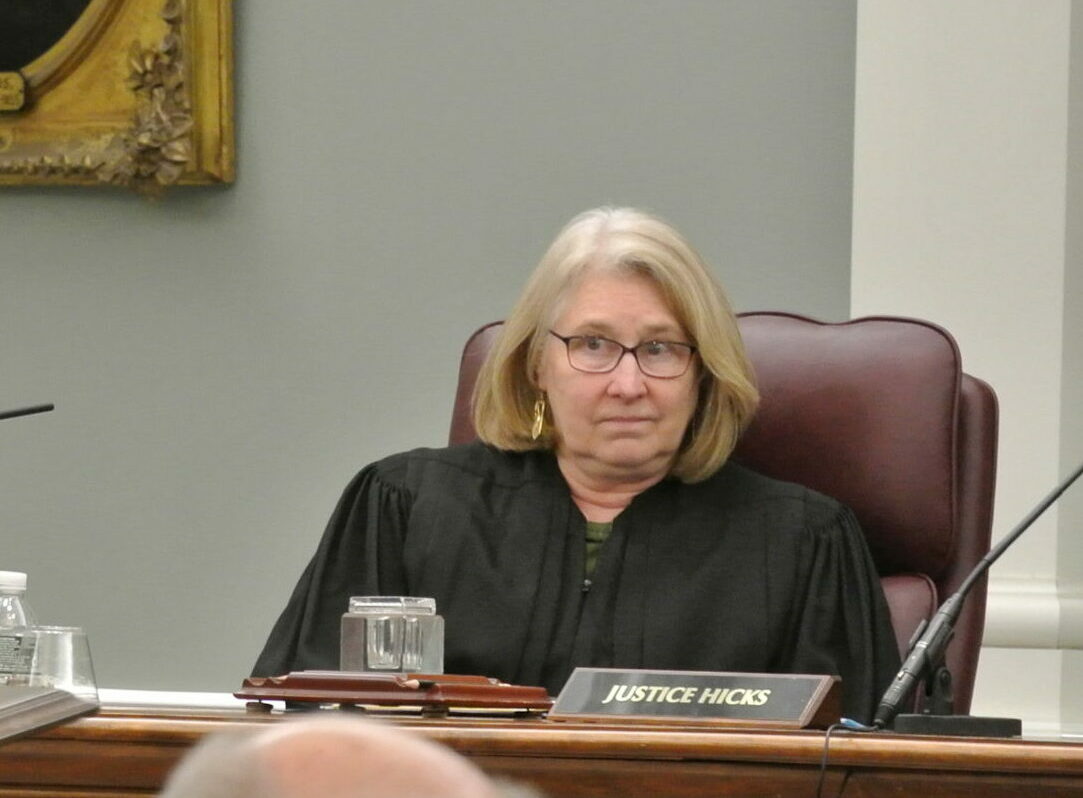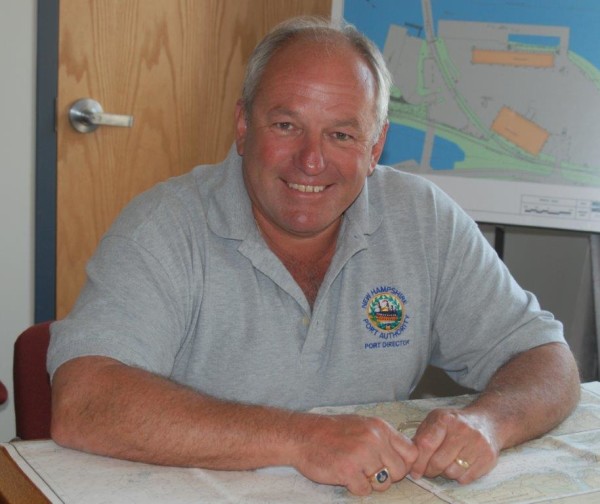Hantz Marconi Attorneys Say It’s Time for State to Put Up or Shut Up

State prosecutors claim they have witnesses who can prove Associate Supreme Court Justice Anna Barbara Hantz Marconi committed crimes. But who those witnesses are and what their evidence is appears to be secret.
So now, Hantz Marconi’s lawyers are asking the court to force prosecutors to let them see the evidence and reveal their mystery witnesses.
Hantz Marconi has maintained her innocence since she was indicted last October on charges of using her position on the state Supreme Court to get the criminal investigation into her husband, Embattled Port Authority Director Geno Marconi, quashed by Gov. Chris Sununu.
After their motion to get the indictments dropped was rejected, Hantz Marconi’s lawyers filed new challenges, including a demand for a bill of particulars. Such documents are detailed statements describing the alleged criminal conduct, as well as a description of the evidence prosecutors have to support the charges.
According to defense attorneys Richard Guerriero and Jonathan Kotlier, the state has so far failed to show why the judge is now a defendant. Hantz Marconi is charged with attempt to commit improper influence, criminal solicitation, official oppression, criminal solicitation, and obstructing government administration, among other crimes.
According to documents filed in the case, the charges stem from Hantz Marconi’s meeting with Gov. Chris Sununu and a phone call she conducted with Pease Development Authority Board Chair Steve Duprey in which she discussed the investigation involving her husband.
The problem, according to Guerriero and Kotlier, is that all of the charges against Hantz Marconi require proof that she purposefully engaged in criminal conduct in those conversations with Sununu and Duprey. However, the evidence provided so far by prosecutors undermines the state’s charges.
According to interview transcripts, Sununu told investigators Hantz Marconi never asked him to get involved in the investigation.
“No, there was no ask, there was nothing (like) ‘Governor, I wish you could do this,’ or there was nothing like that,” Sununu said according to the transcript. “She was expressing frustration. Clearly not asking me to do anything.”
Present at the June 6 meeting with Sununu and Hantz Marconi was Rudy Ogden, Sununu’s legal counsel at the time. Ogden also told investigators the judge never asked Sununu to get involved in her husband’s investigation.
“[T] hat’s why I say in terms of her not asking for anything, it – it never was, it never went more than saying this needs to end quickly…Like it was never ‘it needs to end quickly’ and ‘Geez, if you talk to them you should tell them that,’ or ‘this needs to end quickly and I think you can do that.’ It was never anything like that,” Ogden told investigators.
Duprey told the investigators that Hantz Marconi called him to vent about the difficulties she was facing as a result of her husband’s legal troubles, and not to ask him to do anything illegal about the investigation.
“I think she was very appropriate in not trying to cross the line,” Duprey said.
When challenged on those statements during the hearing on Hantz Marconi’s previous motion to dismiss the indictments, Assistant Attorney General Joe Fincham claimed to have more evidence that would show a crime was committed, including several other witnesses.
“There were facts and circumstances leading up to that meeting, which we expect to be presented at trial, as well as what happened inside the room. Matters which (Sununu) and Rudy Ogden knew nothing about,” Fincham said in court.
However, Guerriero and Kotlier argue the state has not provided any of that information in the discovery process, and they want Fincham to reveal his cards. Without that information, they say they cannot fully prepare for trial.
“[T]o the extent that Attorney Fincham alluded to ‘facts and circumstances leading up to the meeting’ and ‘[m]atters which the governor and Rudy Ogden [know] nothing about,’ the defense has no notice of these allegations,” Guerriero and Kotlier wrote. “[I]f the State has additional information or other witnesses who allegedly will enable the jurors to infer the Accused’s intent, then that information must be provided to the Accused. Bills of particulars are necessary for the Accused ‘to prepare an intelligent defense.’”
Geno Marconi was placed on leave by the Pease Development Authority board last year when the Attorney General’s Office opened the investigation that would result in indictments against him, his wife, and his friend, Bradley Cook, in October. Geno Marconi is accused of getting hold of private driver’s license information on an N.L., giving that information to Cook, and destroying evidence during the subsequent investigation.
Geno Marconi butted heads with the PDA board and Board Chair Neil Levesque for years. Levesque accused Marconi of wrongdoing in managing operations at Rye Harbor. A lawsuit filed in January by owners of Rye Harbor Lobster Pound accused Geno Marconi of trying to drive them out of business to benefit friends and family who operate competing businesses.
Geno Marconi has since retired from his position as ports director. His criminal trial is set for later this year.




